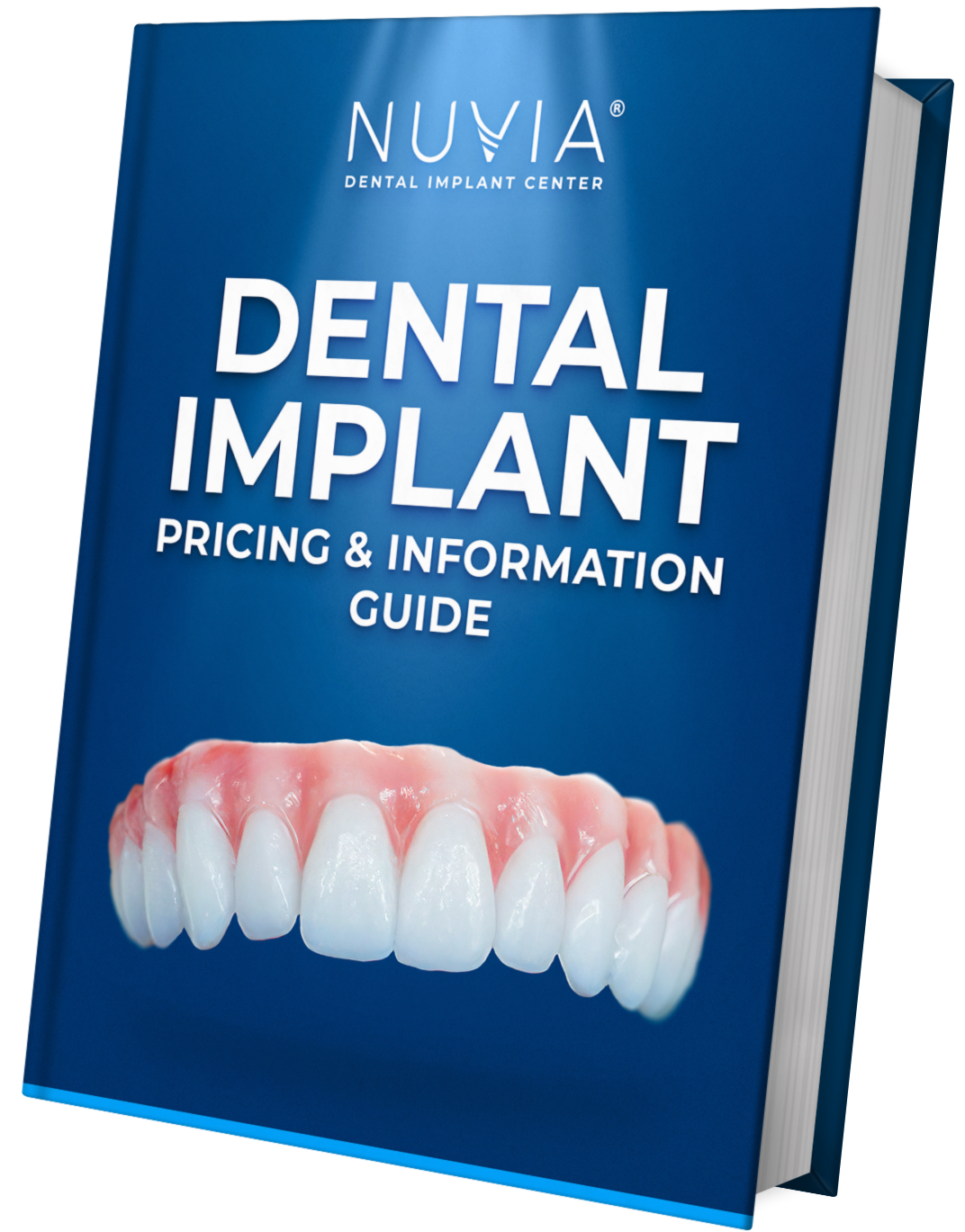
Do Dental Implants Hurt?

Are you considering dental implants but feeling nervous about the potential pain involved? Don't worry, you're not alone. The fear of pain is a common concern among individuals considering dental implants. However, it's important to understand that dental implant surgery is typically associated with little discomfort and is well-tolerated by most patients. In fact, many describe the procedure as easier than they thought, although pain is subjective and can differ from person to person.
Dental implants are designed to replace missing teeth and restore your smile, confidence, and overall function. This innovative solution involves the placement of titanium posts into the jawbone, which act as the tooth roots. The implants are then topped with custom-made teeth that look and function just like natural teeth. With advancements in technology and anesthesia options, dentists ensure a comfortable experience throughout the dental implant process. So, let's debunk the myth and explore why dental implants are a worthwhile investment in your oral health and overall well-being. Before we get to finding out if dental implants hurt, you need to know…
What are dental implants?
Dental implants are a permanent solution for replacing missing teeth. Unlike removable dentures or bridges, dental implants are securely anchored in the jawbone, providing stability and long-term durability. They consist of three main components: the implant, the abutment, and the teeth. The implant is a small titanium post that is surgically placed into the jawbone. Over time, the implant fuses with the bone, creating a strong foundation for the replacement tooth. The abutment is a connector that attaches the implant to the teeth, which is made to match the color, shape, and size of natural teeth. This approach ensures a natural-looking and fully functional tooth replacement.

Dental implants offer numerous benefits beyond aesthetics. Dental implants help maintain bone structure, prevent bone loss, and preserve the shape of the face. Unlike traditional bridges, dental implants do not require the support of other teeth. So if you do not have many healthy teeth left in your mouth, as long as you have enough bone, there shouldn’t be a problem.
Additionally, implants provide stability for chewing and speaking, allowing you to enjoy your favorite foods and speak with confidence. With proper care, dental implants can last a lifetime, making them a cost-effective investment in your oral health.
Does getting dental implants hurt?
One of the most common questions people have when considering dental implants is whether the procedure is painful. It's important to note that dental implant surgery is typically achieved with minimal discomfort. The use of local anesthesia (numbing) ensures that you won't feel any pain during the procedure itself. We will also be put to sleep with general anesthesia to help you relax and feel more comfortable throughout the process.
During the implant placement surgery, you will be completely asleep as the implants are being placed. Because you will be asleep and numbed, this should not be painful. In fact, it is likely you will have no memory of the process at all.

It's worth mentioning that the level of discomfort can vary depending on individual factors such as pain tolerance, the complexity of the procedure, and any additional procedures required. Some patients may experience mild soreness or swelling after the surgery, which can be managed with over-the-counter pain medication and ice packs. However, most people find that any discomfort is manageable and subsides within a few days.
Managing pain after dental implant surgery
While dental implant surgery is generally well-tolerated and associated with minimal discomfort, it's normal to experience some soreness and swelling in the days following the procedure. To manage pain and promote healing, consider the following tips:
1. **Take pain medication as directed**:
Your dentist may prescribe pain medication or recommend over-the-counter pain relievers to help manage any discomfort. Take these medications as directed and do not exceed the recommended dosage.
2. **Apply ice packs**:
Applying ice packs to the affected area can help reduce swelling and numb the area, providing temporary relief. Wrap the ice pack in a cloth to protect your skin and apply it to the outside of your cheek near the surgical site for 10-20 minutes at a time.
3. **Eat soft foods**:
Stick to a soft food diet for the first few days after the surgery to avoid putting unnecessary pressure on the implant site. Opt for foods such as soups, mashed potatoes, yogurt, and smoothies.
4. **Avoid smoking and alcohol**:
Smoking and alcohol consumption can impair the healing process and increase the risk of complications. It's best to avoid these substances for at least a few days following the surgery.
5. **Practice good oral hygiene**:
Maintaining good oral hygiene is crucial for the success of your dental implants. Gently brush your teeth, including the implant site, using a soft-bristled toothbrush. Be cautious not to irritate the surgical area.
6. **Follow post-operative instructions**:
Your dentist will provide you with specific instructions on how to care for your implants and what activities to avoid during the healing process. It's important to follow these instructions closely to ensure optimal healing and minimize any potential pain or complications.
By following these tips and closely adhering to your dentist's instructions, you can help manage any discomfort and promote a smooth recovery after dental implant surgery.

Common misconceptions about dental implant pain
Despite the evidence that dental implant surgery is generally well-tolerated with minimal discomfort, there are still some misconceptions that persist. Let's address a few of these misconceptions to provide a clearer understanding of what to expect:
1. **Dental implants are extremely painful**:
While every individual's pain threshold is different, most patients report minimal discomfort during and after dental implant surgery. The use of local anesthesia and sedation options ensures a comfortable experience for you.
2. **The recovery period is long and painful**:
While it's true that the recovery period can vary depending on individual factors, most patients experience only mild soreness and swelling that typically subside within a few days. The majority of individuals are able to resume their normal activities within a week or two after the procedure.
3. **Dental implant surgery is riskier than other dental procedures**:
Dental implant surgery has a high success rate and is considered a safe and predictable procedure. With proper planning, preparation, and post-operative care, the risk of complications is minimal.
It's important to discuss any concerns or fears you may have about dental implant surgery with your dentist. They can provide you with personalized information and reassurance based on your specific situation.
Factors that may affect the level of discomfort during dental implant surgery
While dental implant surgery is generally well-tolerated, there are some factors that may influence the level of discomfort experienced during the procedure. These factors include:
1. **Complexity of the procedure**:
The complexity of the dental implant surgery can affect the level of discomfort. In some cases, additional procedures such as bone grafting or sinus augmentation may be required, which can increase the complexity of the surgery and potentially lead to more post-operative discomfort.
2. **Individual pain tolerance**:
Pain tolerance varies from person to person. Some individuals may have a higher pain threshold and experience less discomfort during and after the procedure, while others may be more sensitive to pain.
3. **Experience and technique of the dentist**:
The experience and skill of the dentist performing the dental implant surgery can also influence the level of discomfort. An experienced dentist who uses advanced techniques and technology is more likely to ensure a smooth and comfortable experience for the patient. Nuvia has a team of highly skilled oral surgeons who have performed his procedure countless times.
4. **Pre-operative anxiety**:
Dental anxiety or fear of the unknown can amplify the perception of pain. If you are anxious about the procedure, it's important to discuss your concerns with your dentist. They can explain the process in detail, address any misconceptions, and offer sedation options to help you relax during the surgery.
By considering these factors and discussing them with your dentist, you can have a better understanding of what to expect and make informed decisions about your dental implant surgery.

Tips for minimizing pain during and after dental implant surgery
While dental implant surgery is typically associated with minimal discomfort, there are some steps you can take to further minimize pain and promote a smooth recovery:
1. **Choose a skilled and experienced dentist**:
Selecting a dentist who really understands dental implant surgery and has a proven track record of successful outcomes can help ensure a comfortable experience and optimal results.
2. **Discuss sedation options**:
If you experience dental anxiety or prefer to be more relaxed during the procedure, discuss sedation options with your dentist. Sedation can help you feel calm and comfortable throughout the surgery.
3. **Follow pre-operative instructions**:
Your dentist will provide you with specific instructions to prepare for the dental implant surgery. This may include avoiding certain medications or adjusting your diet. Following these instructions closely can help reduce the risk of complications and promote a smoother recovery.
4. **Ask about pain management options**:
In addition to local anesthesia, your dentist may offer additional pain management options, such as numbing gels or analgesics, to further minimize discomfort during the procedure.
5. **Take it easy after the surgery**:
Resting and avoiding strenuous activities for a few days after the surgery can help promote healing and minimize any postoperative pain or swelling. Follow your dentist's instructions regarding activity restrictions.

6. **Maintain good oral hygiene**:
Keeping the implant site clean and free from infection is crucial for successful healing. Follow your dentist's instructions on how to care for your implants, including brushing and flossing techniques.
By following these tips and working closely with your dentist, you can minimize any potential pain during and after dental implant surgery and ensure a smooth and successful recovery.
The importance of going to the right dental professional
If you're thinking about getting dental implants, it's really important to talk to a dentist who knows a lot about this. At Nuvia Dental Implant Center, we have a team of people who are really good at this stuff. They can look at your teeth, talk to you about what you want, and then suggest the best option for you.
Maybe you're worried about how much getting implants might hurt. That's normal, and we're here to help. When you come to visit us, you can tell us about any worries you have. We'll give you all the info you need and help you understand what to expect. We'll also tell you about our "Permanent Teeth in 24 hours" process, which is a lot quicker than the old "Teeth in a Day" method that could take up to 10 months.
Choosing to get dental implants is a big decision. By talking to our team at Nuvia, you can feel confident about your choice.

Conclusion
Throughout this discussion, several important topics have been addressed. We've explored what dental implants are and the steps involved in the implant procedure. Pain associated with the process and managing discomfort after the surgery were also discussed, along with common misconceptions about the procedure.
It's been highlighted that with the right provider, like Nuvia Dental Implant Center, the journey to restored smiles can be smooth and comfortable. The fear about pain and discomfort is often unnecessary as modern techniques and technologies have made the process largely comfortable.
For those curious about their eligibility for dental implants at Nuvia, our 60-second online quiz is available. We invite you to talk with a dental implant professional today to learn if they may be right for you!
More Articles Like This one

All on 4 Dental Implants and Diabetes: What You Need to Know

Commitment to Your Safety





